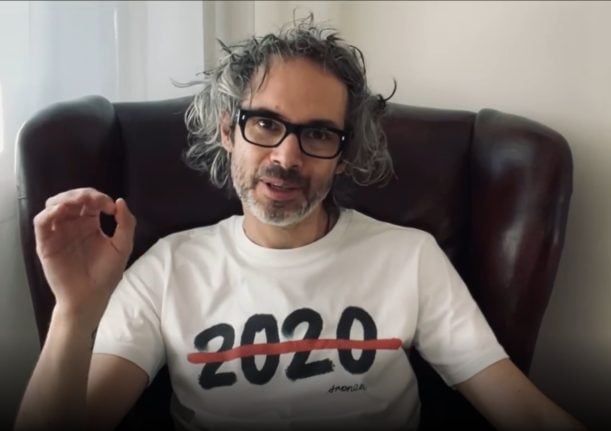The British concert pianist James Rhodes was granted Spanish citizenship this week in a move which angered some critics of the government.
Hoy hemos acordado conceder, por Carta de Naturaleza, la nacionalidad española a @JRhodesPianist Sus méritos artísticos y, sobre todo, su compromiso frente al maltrato y la violencia contra los niños, hacen de él un símbolo de la nueva España. Felicidades compatriota ✊ pic.twitter.com/nFLDI7Oy6C
— Pablo Iglesias ? (@PabloIglesias) December 29, 2020
The fast-track award of citizenship for the musician who only moved to Spain three years ago prompted accusations of cronyism against the left-wing coalition.
Critics bridled at the way Rhodes was given citizenship so quickly while many others have toiled for years in the salt mines of Spanish bureaucracy without success.
Nice for you. Un regalo indeed. The rest of us have to wait in line for years. Good to see how quickly you’ve grasped the Spanish concept of enchufe.
— Stephen Burgen (@stephenburgen) December 29, 2020
The pianist was granted citizenship by Carta de Naturaleza, or letter of naturalisation following a cabinet meeting. Express citizenship, you might call it.
Normally, the rules say that foreign nationals must live in Spain for ten years before they can apply. Even then, they may face years of battling with paperwork.
Those granted refugee status can get citizenship in five years and it is only two years for people in certain Latin American countries.
The row set me thinking about the issue of citizenship as Brexit is finally about to happen on December 31st.
As a Briton, I have been struggling with months of what they call in Spanish 'papeleo', that is nightmare bureaucracy over Brexit.
The latest round revolved being rejected for a TIE card for my two youngest sons.
It turned out we must wait for the post office to bring us a piece of paper with exactly the same information as the piece of paper I was given at another office last month.
Only then can I ask for the TIE.
Kafkaesque doesn't even begin to sum it up.
At the same time, a police officer advised me: 'It is only going to get worse for people with British passports. Get them French passports.' (Reader they are half French)
Boy, I am tempted.
After hearing of the story of James Rhodes' speedy Spanish citizenship, I felt a twinge of jealousy. Perhaps it is time to give up on the British passport after all?
At this point I should say full disclosure: I am a big fan of Rhodes, for two reasons.
Firstly, and most importantly, because of the way he campaigned to change the law on child sexual offences in his adopted home.
This led to what the media have called the 'Ley Rhodes', making it easier for those who suffered abuse to bring successful prosecutions.
Secondly, he is a wonderful pianist. Go and see him when life returns to some semblance of normality. Genius.
But back to the issue of citizenship, I know plenty of people who are taking that step, regardless of the paperwork involved.
For most people it is a practical issue which will allow them to live and work more easily in Spain or other parts of Europe.
READ ALSO: 'I'm a proud Brit but here's why I'm officially becoming Spanish'
One friend is very practical about it. 'It is just a matter of papers to me. Of course, I am no more Spanish than you. But I just want to be able to go about my life without all the hassle that is going to come with having a British passport,' she said to me the other day.
Perhaps I am reluctant to take the plunge because of some nostalgic link to the old country? i.e. Britain.
However, I harbour no such reluctance for my children. I am going to start applying for French passports as soon as possible.
Vive la France! A bas les anglais!
After all, why should they be lumbered with all the same problems as me when there is an easy way out of this?
The blue British passport will not bear their names.
The row over citizenship makes me wonder why this has become such a consuming issue in the 21st century.
This should be a moment in history when barriers are coming down internationally.
Of course the past four years of history have demonstrated quite the opposite, in Europe with Brexit and in the US with the success of outgoing President Donald Trump.
However, that was then.
Looking to the future, as we try to recover from the COVID-19 pandemic, perhaps nations might come together?
Well, here's hoping.

Graham Keeley is a Spain-based freelance journalist who covered the country for The Times from 2008 to 2019. Follow him on Twitter @grahamkeeley .
READ MORE:
- ANALYSIS: Britons in Europe still gripped by fear and loathing over Brexit
- ANALYSIS: Many Brits in Spain will soon have to make a life-changing choice
- ANALYSIS: What does 2021 have in store for those living in Spain?




 Please whitelist us to continue reading.
Please whitelist us to continue reading.
Member comments